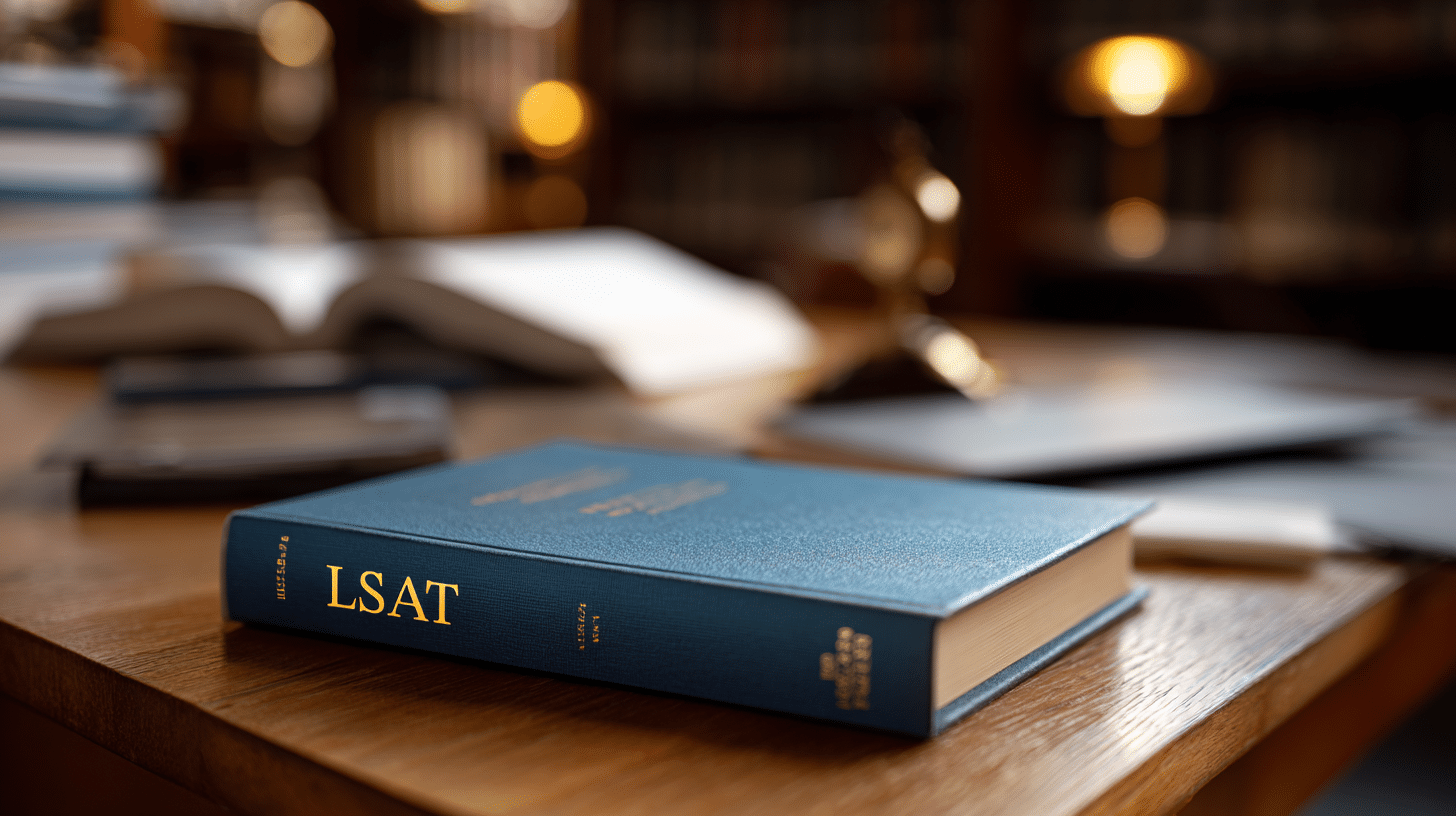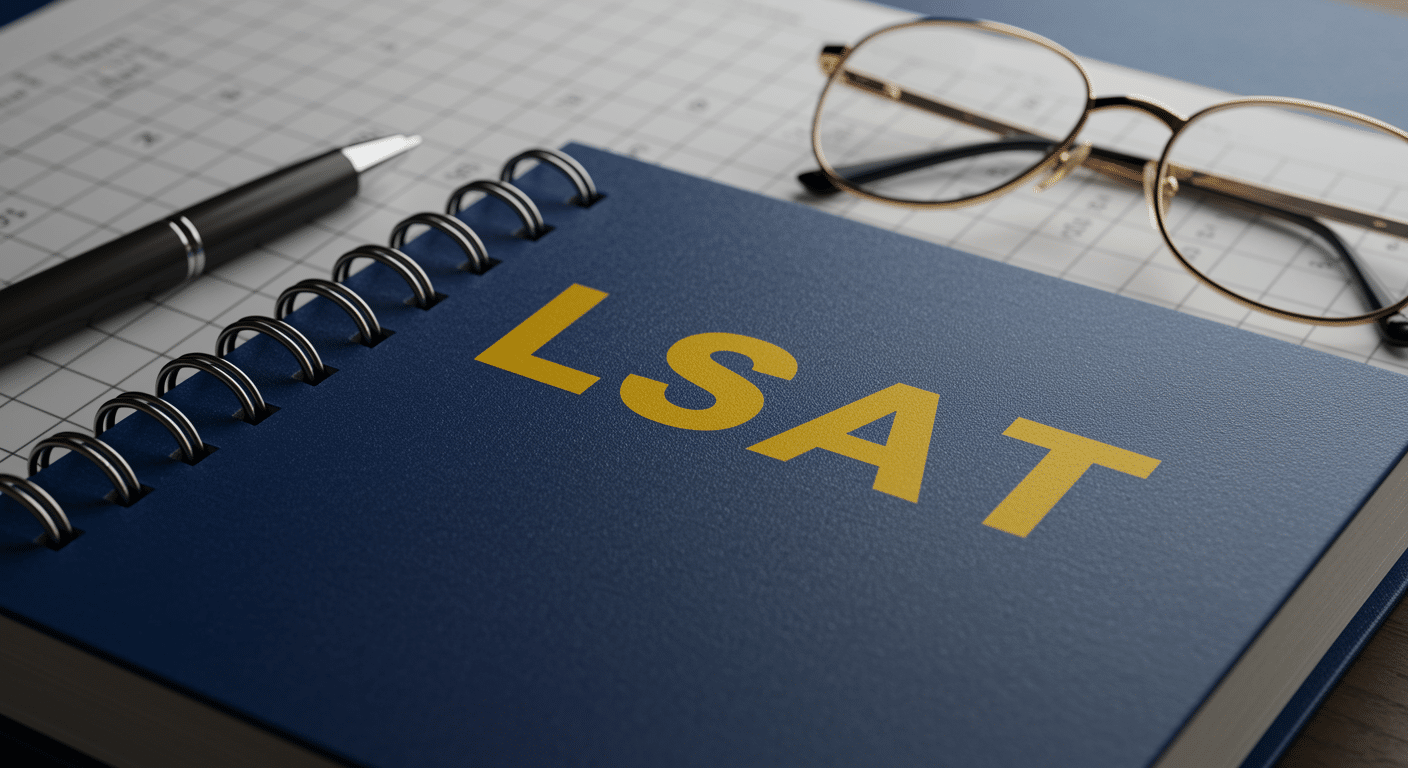The Law School Admission Test (LSAT) is an essential part of the admissions procedure if you want to take admission in law schools of United states and Canada. It is intended to evaluate the logical reasoning, reading comprehension, and critical thinking abilities of the candidate which are required for a law school.
This blog will cover all eligibility requirements needed for LSAT, as well as the admission process.
So if you are an aspiring LSAT candidate then this blog is for you.
What is LSAT?
The LSAT, conducted by LSAC is a competive exam for the admission in law schools of U.S. and Canada.
It assesses your capacity for thinking critically, analyzing logical scripts and paraphrasing texts. There are multiple-choice questions and a writing sample on the test.
Reading comprehension, logical reasoning, analytical reasoning and a variable unscored section are important components of this exam.
Who Can Give LSAT?

There are no specific guidelines in as to who can give this exam, Since the exam is available globally, its acceptance is widely recognized and both domestic and international applicants are welcome.
Eligibility Requirements
- If you are already a JD holder, some institutions have separate guidelines for the same.
- The attempts are limited to 5 attempts in five years and 7 times for a lifetime.
- You must be at least 18 years old in most cases (there’s no upper age limit).
- No specific degree is required but a pre-requisite course might be beneficial.
Registration Requirements
- Documentation:- Valid government-issued photo ID
- Account Setup:- You have to create a valid account on LSAC portal
- Fee Structure :- Standard test fee: $248
Educational Requirements
- Top-tier schools: 170+ (Yale, Harvard, Stanford)
- Mid-tier schools: 155-169
- Lower-tier options: 145-154
Why Is LSAT Important for Law School?
The LSAT is mandatory for most law schools because it offers a generalized way to assess applicant’s performance and eligibility to be in legal education, unlike GPA which varies across institutions.
Law schools rely on LSAT scores for a wider scope of the applicants profile an predict their performance parameters. Its validity is trusted across various law schools and it also creates a benchmark for the demands of legal training.
Recent Trend Changes (2025)
| Trend Area | Update |
|---|---|
| ABA LSAT Requirement (2025) | ABA no longer requires LSAT or any standardized test for accreditation |
| Law School Testing Policies | 30 schools reported as “very likely” to continue requiring admission tests |
| Accepted Alternative Exams | GRE accepted by many law schools |
| GMAT accepted at select institutions | |
| Some schools now accept multiple test types | |
| Student Strategy Shift | Rise in LSAT prep continues, but GRE prep also gaining traction |
| Admissions Forecast | Slow adoption of test-optional policies expected |
Impact: Law schools now have the privilege to set their own admission standards, including which entrance exams they accept. This shows a gradual shift toward test-optional admissions. This new implication has significantly increased flexibility and has created new opportunities for applicants with varied academic strengths, allowing them to select the exam that aligns best with their skills. As a result, many candidates are now taking a more strategic approach while carefully evaluating individual school policies before deciding which test to take.
Special Circumstances: LSAT Policies for Disability
These LSAT disability accommodations are designed to support individuals with physical, cognitive, sensory, or psychological impairments, in line with the Americans with Disabilities Act (ADA).
It is for specially abled people who need extra time to prepare, breaks, scribe or separate halls. LSAT have separate guidelines for them and they must follow the paper work related to it.
You must provide required documents that highlight your condition and how it impacts your ability to take the LSAT under normal circumstances. In order to apply for accommodations you can check the official website of LSAC. This could involve medical assessments, prior accommodations, and expert advice. (1)
Preparing for LSAT: Action Tips
You should be thoroughly prepared at each step of application which most importantly include the need of action tips which you have to bear in mind till the exam day.
- Successfully navigate the LSAT requirements starts with proper preparation and documentation.
- Before registering, verify your eligibility status and gather required materials including a valid government-issued photo ID that exactly matches your registration name.
- If you need testing accommodations for disabilities, submit your request with supporting documentation by the accommodation deadline associated with your test date.
- Choose between remote testing or in-person centers based on your location and preferences.
- Plan your test timeline strategically around law school application deadlines.
- Research your target schools’ specific LSAT policies, especially since some now accept alternative tests like the GRE.
Top Law Schools (Scores Updated)
| Law School | Median LSAT | Median GPA |
|---|---|---|
| Yale University | 175 | 3.94 |
| Harvard University | 174 | 3.95‑3.96 |
| Stanford University | 173 | 3.92‑3.96 |
| University of Chicago | 173 | 3.91 |
| Columbia University | 173 | 3.90 |
| University of Pennsylvania | 172 | 3.90 |
| New York University (NYU) | 172 | 3.88‑3.91 |
| University of Virginia (UVA) | 171 | 3.94 |
| Northwestern University | 171 | 3.89‑3.95 |
| University of Michigan‑Ann Arbor | 171 | 3.83 |
| UC Berkeley (Boalt Hall) | 170 | 3.83 |
| Duke University | 170 | 3.85‑3.89 |
| Cornell University | 172 | 3.87‑3.89 |
| USC Gould School of Law | 169 | 3.83‑3.91 |
| University of Minnesota | 169 | 3.88 |
Frequently Asked Questions
Can I Take LSAT without A Degree?
Yes, you can take the LSAT without a college degree. The LSAC does not require any specific educational qualifications to register for the exam. However, most law schools expect applicants to hold a bachelor’s degree by the time they enroll, so while a degree isn’t needed to take the LSAT, it is typically required for admission.
How Much Does LSAT Cost?
According to the updated fee structure, the LSAT registration fee for the 2024–2025 testing year is $248, covering both the multiple-choice exam and the writing section.
In addition, you’ll need to budget for the Credential Assembly Service (about $200–$207) and $45 per law school report. So you have to plan accordingly.
How Hard Is LSAT?
The LSAT is considered a challenging exam due to its emphasis on logic, critical thinking, and reading comprehension. It requires strong reasoning skills under time pressure. With dedicated preparation and practice, many students can crack this , but it’s widely regarded as one of the toughest graduate admissions tests.
Are There Any Pre-Requisite Courses for Law Schools?
There are as such no mandatory prerequisite courses for law school. However, courses that help in building skills in writing, critical thinking, research, and analysis are highly recommended. Law schools accept applicants from all academic backgrounds, so choose courses that strengthen your reasoning and communication abilities.
Conclusion
As the process of Law School gets evolved, many major changes can be seen throughout the years. The good news is that the LSAT is open to almost everyone—there are no specific degree or course prerequisites, and age is not a barrier. Whether you’re a college student, working professional, or international applicant, the LSAT offers a standardised way to asses the capability of aspiring candidates.
Carefully research each school’s admission criteria, consider whether the LSAT, GRE, or another test suits you best, and plan your prep accordingly.
By staying updated on LSAT eligibility, registration steps, accommodations, and testing trends, you’ll be able to make strategic decisions for your legal education, whether you’re just starting out or planning your application timeline












